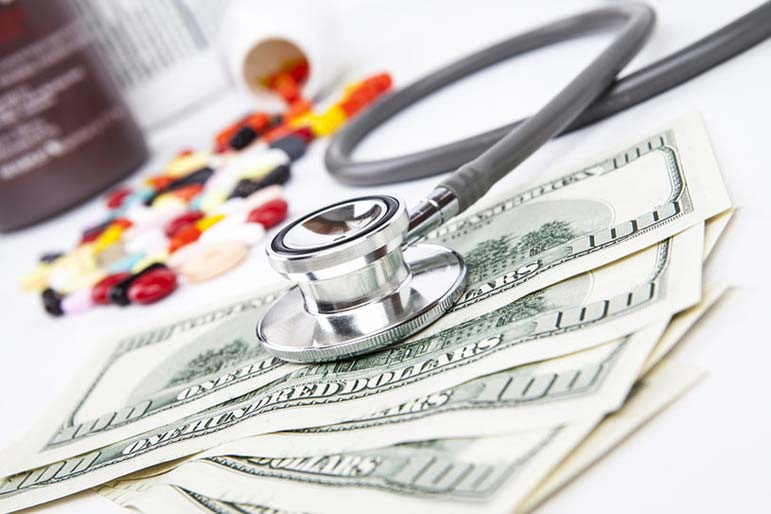
The Centers for Medicare & Medicaid Services recently announced new options to increase competition for physician- administered drugs and lower the cost of some innovative medications, and the Food and Drug Administration is exploring importation to create more competition in the generics market.
These reforms will help. But the real game changer is under review at the Office of Management and Budget. Although details are under wraps, it is clear that Health and Human Services Secretary Alex Azar wants to end kickbacks in the pharmacy distribution chain that are costing Medicare and taxpayers billions of dollars.
Here's how it works. Health-care plans - either from private insurance or the government - have long relied on companies known as pharmaceutical benefits managers, or PBMs, to administer their drug coverage. Initially, PBMs played an important role in bringing down drug costs, serving as the middlemen between drug manufacturers and health plans. This setup was good for everyone: PBMs - leveraging their colossal size to purchase drugs at a discount price - offered cheaper coverage for health plans, and drug companies got access to more consumers.
But the system has broken down over time as PBMs have consolidated; today, just three PBMs account for 85 percent of the market. It's now common practice for PBMs to receive kickbacks from drug companies to give special treatment to the manufacturer's products - typically more expensive brand-name drugs - so that customers buy them. This gives both drug companies and PBMs a perverse incentive to raise, not lower, drug prices. The higher the price, the larger the PBM kickback and the more the drug company sells.
This might be fine if patients and the government also benefited, but they do not. These kickbacks don't show up in the prices Medicare beneficiaries pay at the pharmacy counter. This raises out-of-pocket costs - especially for the sickest patients - and quickly moves Medicare patients into "catastrophic" spending, where the government foots more of the bill.
Kickbacks is an uncomfortable word. PBMs much prefer to call the money they pull from drugmakers "rebates," implying a systemwide benefit. But history is not on their side.
In 1972, Congress passed the Anti-Kickback Statute, which, among other things, prevented drug manufacturers and device suppliers from offering inducements to patients to use their products over others. But because the statute also made it hard to continue some competitive behavior in patients' interests - such as a physician group offering a discount on their services to be included in a regional hospital's network - Congress amended the law to give HHS the power to determine which practices deserve "safe harbor" from kickback enforcement.
PBMs quickly sailed into their own safe harbor after HHS allowed them to negotiate payments from drug manufacturers in exchange for favorable treatment. Importantly, the payments between the PBM and the drug manufacturer occur after the sale is made. Thus, these payments - rebates in PBM parlance - are different from a discount at the point of sale, and they exclude the patient and the pharmacist from the transaction.
PBMs collect the rebates, but who keeps them? The money could be used to lower premiums, but there is reason to believe that PBMs are pocketing an outsize share. The wedge between the prices that manufacturers list for their drugs and the actual prices paid for them has more than doubled since 2012 - a gap of more than $150 billion. Rebates and other indirect remuneration now account for 17 percent of drug spending in the Medicare Part D drug program.
Getting rid of the PBM safe harbor provision could change all that. By eliminating rebates, the retail prices for most drugs would immediately fall and the savings would be passed on to consumers. Some worry that if you take away rebates, you eliminate a revenue source for PBMs. As a result, PBMs might increase premiums for the plans to make up for the shortfall. There is some truth to that, but based on competitive pressures to keep premiums low, they shouldn't rise by much.
Most importantly, eliminating rebates will make sure the sickest patients aren't paying the price for these kickbacks. Surely, they are the ones who deserve a safe harbor.
(COMMENT, BELOW)
Goldman is director of the Leonard D. Schaeffer Center for Health Policy & Economics at the University of Southern California. He serves as a consultant to drug companies and holds equity in Precision Health Economics. Jena is the Ruth L. Newhouse associate professor of health care policy at Harvard Medical School, an internist at Massachusetts General Hospital and consultant to Precision Health Economics and drug companies.


 Contact The Editor
Contact The Editor
 Articles By This Author
Articles By This Author